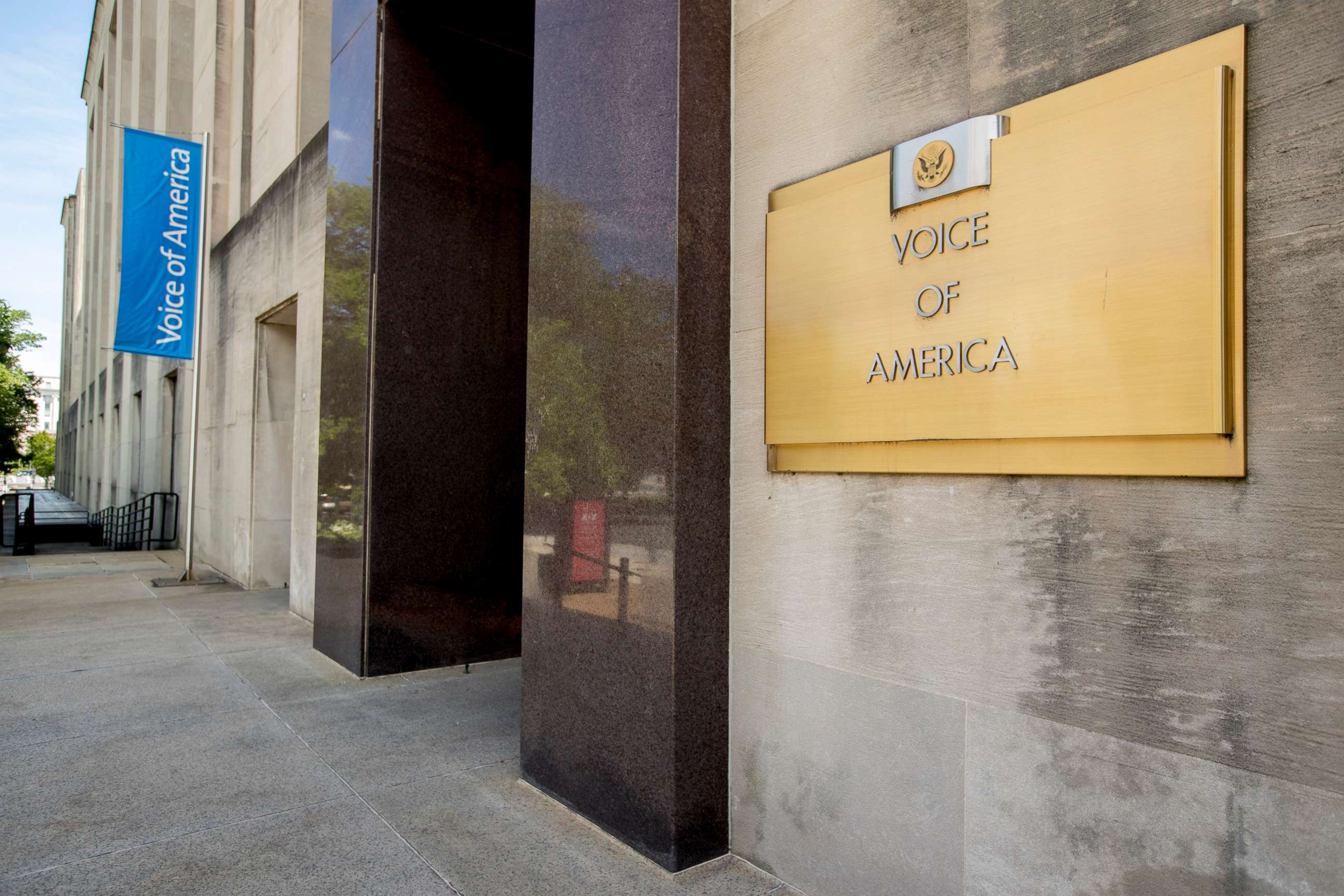Trump's broadcasting agency chief not extending visas for foreign journalists amid sweeping changes
Michael Pack says he's pursuing "bold and meaningful" changes.
President Donald Trump's chief at the U.S. Agency for Global Media has continued to fire career officials -- according to a senior official at the agency -- as he refuses to renew U.S. visas for employees at the U.S.-funded outlets he oversees.
Michael Pack, a conservative filmmaker tied to Steve Bannon, has upended the Voice of America and its affiliates after just one month on the job, sparking concern from Republican and Democratic lawmakers. Pack has dismissed concern, saying he's making "bold and meaningful changes" to improve the agency.
Last month, Pack cleaned house, firing the heads of Radio Free Europe/Radio Liberty, the Middle East Broadcasting Network and the Open Technology Fund, an independent agency backed by the U.S. government to promote a free and open internet.
Voice of America's top two executives also resigned shortly before he started, while the head of Radio Free Asia was first demoted last month and was fired in the last week, a source familiar with the matter told ABC News.
But Pack is firing other officials at the USAGM and hasn't been communicating with the networks, according to a senior USAGM official.
"Things are a mess," the official said. "[He] doesn't trust anyone who isn't a political appointee."

Two sources close to the situation said that Pack has been refusing to sign the necessary paperwork to renew U.S. visas for VOA journalists. One source said Pack may be reconsidering after National Public Radio and others first reported this policy last week, but they added that so far, he has continued to refuse to sign.
This policy affects dozens of employees -- according to the source -- some of whom could be endangered if they are deported to their home countries because of the work they do translating articles about and reporting on corrupt and dangerous regimes there.
In the face of risk, VOA is reporting on Pack's policy, telling the story of one employee whose visa -- and therefore her wife's visa -- is set to expire with no chance of renewal, and who now faces deep uncertainty.
A USAGM spokesperson has not responded to ABC News' requests for comment, but reportedly told VOA that all visas are being reviewed on a case-by-case basis to improve management and protect national security, the outlet said.
Pack has also defended himself publicly, writing in the New York Post that coverage of his firings "was over the top" and defending it as necessary to "fix a nonpartisan mess." In a letter to Congress Monday, he reportedly said he was tapped to make "bold and meaningful changes."
USAGM also took the unusual step of issuing a press release with quotes sourced to anonymous employees, praising Pack's leadership and "candidly congratulat[ing] him," it said. Critics accused the agency of propaganda.

Republicans and Democrats in Congress also don't see anything to congratulate. Trump allies Sen. Lindsey Graham, R-S.C., and Sen. Jerry Moran, R-Kans., joined other Republicans and Democrats in writing a letter to Pack on July 1 that warned, "Given the bipartisan and bicameral concern with recent events, we intend to do a thorough review of USAGM's funding to ensure that United States international broadcasting is not politicized and the agency is able to fully and effectively carry out its core mission."
In the meantime, Pack is pushing ahead. According to the senior official, his freeze has been particularly hard on the Office of Cuba Broadcasting, which operates Radio and TV Marti and will soon be out of funds entirely.
He also announced that VOA will bring back editorials. The outlet and its sister networks are funded by the U.S. government, but operate with a strict firewall that protects its editorial independence. But its charter allows for opinion pieces, which Pack said he is bringing back to express the views of the U.S. government.
It's unclear, however, what that will look like under Trump, as there are fears Pack has been working to make VOA and its affiliates into pro-Trump mouthpieces.
The top Democrat on the Senate Foreign Relations Committee, Sen. Bob Menendez, D-N.J., cast Pack's moves as just that in a statement last month, saying they were "sadly the latest -- but not the last -- [attack] in the Trump administration's efforts to transform U.S. institutions rooted in the principles of democracy into tools for the president's own personal agenda."
This turmoil at the agency may also start to have an impact on U.S. foreign policy, one retired ambassador argued Tuesday. Former U.S. special envoy for North Korea human rights Robert King wrote that Pack "has taken a page from Kim Jong Un's media control playbook" to "enforce the party line."
"By politicizing the news that is broadcast from VOA and other U.S. information programs to people living under dictatorships around the world, we establish the view that United States media is a mirror of their own tightly controlled and manipulated media," he added. "VOA should never be the American equivalent of North Korea's state media."




